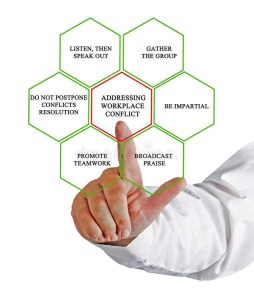
Why Women Are Being Unappreciated and Poorly Paid
Why Women Are Being Unappreciated and Poorly Paid has to be addressed now, its not a simple answer to what appears to be a simple question, please read on. Information on workplace gender equality is also available.
Many politicians, journalists and commentators, claim that this is due to females tending to be in lower-paid careers. Of course, the pay equality complaint is that females are paid less than males for the same work, but the discussion should also include the fact that females do tend to be in lower paid careers and why. The truth is that “women’s” careers are paid less because it’s females who tend to do the work. Don’t believe me? Just look at the history.
Femininizing Fields
You might hear some people say that if females want to be paid more, they should work in higher-paying fields. This might seem like good advice, but the fact is that the more females who follow it, the less true it will become. This is because jobs are paid less as they gain popularity with females.Look at recreation
Look at recreation: As females began to outnumber men at gyms’, boot camps, as personal trainers and the like, jobs in that field saw a pay drop of 57% from the 1950s until today, even after adjusting for inflation. The same can be seen in more artistic careers as designers, artist, picture framers have seen their wages cut by 34% as the industry as seen more females employed. Biology, and Ecology used to be a highly-respected fields in science, but as more and more females became biologists and are employed, the wages fell by 18% and it’s now seen as a “soft” science, rather than the harder (more masculine) fields of physics and chemistry. Think of other fields, like psychology, teaching, disability care, etc. You can probably come up with dozens of careers and occupations that fit this pattern.

Jobs become feminized
So, jobs are paid less when they become “feminized.” But the opposite is true when males start to take over a previously female-dominated field. A good example is computer programming. Most programmers and systems analysts were once females, and, at that time, the position was seen as menial. As males poured into the field, it began being paid substantially more. Not only that, it’s gained a lot of prestige; no one would say computer programmers have tedious, or menial jobs anymore.
Think that it just shows how priorities have changed over time?
Consider doctors. While female doctors are paid less than their male counterparts in any specialty, we also see a massive pay gap between different kinds of specialists. Pediatricians, who are overwhelmingly women, are paid significantly less than most other specialties. There’s even a huge difference between cardiologists and pediatric cardiologists in terms of pay. We can also make comparisons between countries. In the United States, medicine has historically been a very male field and it’s highly paid. In Russia, medicine is a field dominated by women, and it is paid extremely poorly in relation to other professional field.
There is a argument and the evidence indicates that pay is largely determined by the gender build-up of the industry. Male-dominated fields pay, on average, 21% more than more “feminine” fields. It’s not that females choose lower-paying jobs; it’s that females work is paid less, no matter what that work entails.
Minimal Pay
So, what about males in female-dominated careers? Answer: they’re still paid more. Male nurses earn more than female RNs in every specialty. About three quarters of public school teachers are women, which might explain why the field is so poorly paid. Even so, male teachers earn 10%+ more than female teachers. Even the titles change for very similar jobs. Janitors, who are mostly males, earn more than housecleaners, who are generally females.
And then there’s the minimum wage. Nearly two-thirds of minimum wage earners are females. When the minimum wage was introduced in Australia, the idea was that a man working 40 hours each week should be able to support himself and his family at a decent level of living. Today, working full-time on the minimum wage can do no such thing. Back then, the intended beneficiaries were men (and their families). Today, the minimum wage goes mostly to females, and now the minimum wage no longer fulfills its intended purpose. Coincidence? I think not.
It’s Time to Start Appreciating Females and the Work They Do
The simple fact appears to be that typically “feminine” careers are paid less because it’s women who do the work. Regardless of what type of work it is or what skills are necessary, the more females are in a occupation / profession, the less it gets paid. On top of that, males in all fields, including “feminine” industries, are paid more than their female counterparts. This bias in favor of males trickles down to our very minimum wage, which has seen drastically reduced buying power as females began receiving most of those minimum payments. All of this indicates that it’s not women’s work that is undervalued; females themselves are undervalued.
Working women deserve equal recognition, respect, and pay for the work they do. It’s long overdue that females be valued and appreciated, for their contributions to society and otherwise. females still aren’t treated – or paid – equally, and it’s about time they were. If the job is important enough to exist, it’s important enough to pay it fairly, whether male or female do it. It’s time to start valuing females and the work they do.

Some employees will do better than others
There are always winners and losers in the workplace regarding careers, salaries and promotional opportunties. The stakes and reputation are higher than ever for employers that want to achieve gender equality. Females are demanding more from work, they are not prepared to accept the “status quo’ and they’re leaving their employers in unprecedented numbers to get it. Females are switching jobs at the highest rate we’ve ever seen—and at a higher rate than men in leadership. This is particularly the case in consulting and legal firms. This will have serious implications for employers in the future.
Females are already significantly underrepresented in management, more senior roles and board appointments. For years, fewer females have risen through the ranks because of the “broken rung” at the first step up to manager. Now, employers are struggling to hold on to the relatively few senior females they have. And all of these dynamics are even more pronounced for females who are born overseas or have a accent.
Not considered part of the gang
The reasons female leaders are stepping away from their employers are telling. Female leaders are just as ambitious as men, but at many employers they face headwinds that make it harder to advance They’re more likely to experience belittling microaggressions, such as having their judgment questioned or being mistaken for someone more junior. They are not simply considered “part of the gang”.
They’re doing more to support employee well-being and foster inclusion, but this critical work is spreading them thin and going mostly unrewarded. And finally, it’s increasingly important to female leaders that they work for employers that prioritize flexibility, employee well-being, and diversity, equity, and inclusion. If organisation’s don’t take action, they won’t just lose their quality staff regardless if there male or female.

I’m not pro female or anti male, i’m pro everybody in the workplaces of Australia.
There has to be more discussion in the current difficult economic times, particularly as we start to reemploy people as we come out of the recession. There is no easy answer to the conversation outlined above, history shows us, in recessions, pandemics, that’s it’s the less advantaged, the working class poor, part time workers that are impacted the most.
It’s well advertised that partners in accounting and law firms are taking pay cuts on their $400,000 to $800,000 jobs, but there is no doubt they will survive, maybe their lifestyle will have to be adjusted. Workers in lower paid positions, (in many cases females) who are the household dominate income provider, will lose the car, house etc, this will then impact on the physiology of the next generation of children as it did in the great depression.

Conclusion to Why Women Are Being Unappreciated and Poorly Paid
I hope the article leading with “why Women Are Being Unappreciated” has been empowering. We are A Whole New Approach P/L. We are not lawyers, but leading workplace advisors for over 30 years. In sex discrimination, under the General protections , sexual harassment, adverse action claims for women. Diversity in the workplace, gender issues, Casual workers rights, if you want to contribute to the debate, give us a call. Toxic workplaces by not having equal pay should be from a bye gone era. We are Australia wide, NSW, Qld, Victoria, Tas, SA, WA, NT
1800 333 666 for free, prompt advice or email: mediate@awna.com.au
Articles similar to Why Women Are Being Unappreciated and Poorly Paid
Dismissed and replace by a cheaper worker






